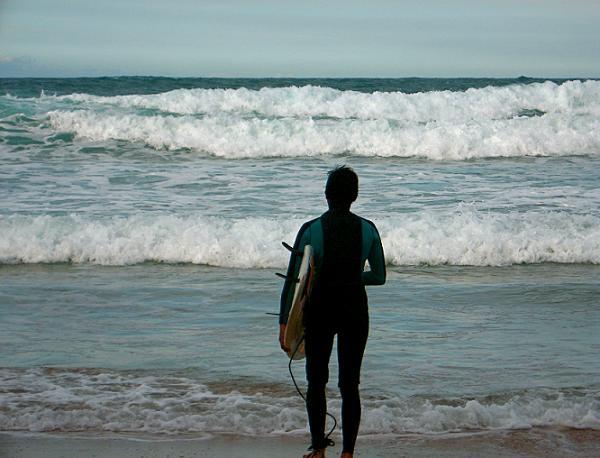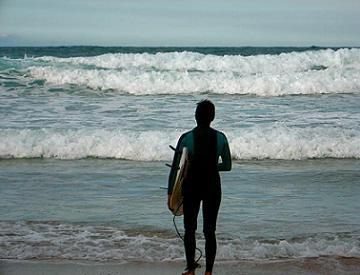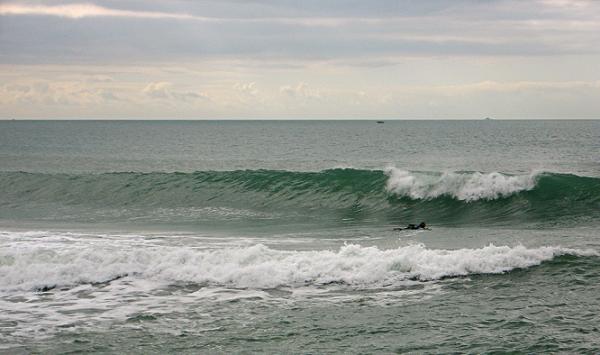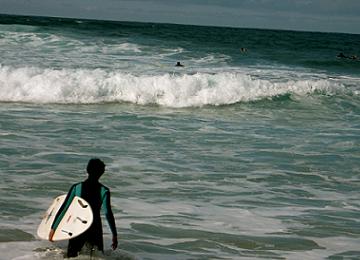
The author in Sagres. Photo: Isaac Dunne
I WAS HAVING ISSUES. Even Edwin could see that from the beach. Every time the dark lines of the sets approached, I could feel my heart start to palpitate. Images of wiping out and getting pummeled underwater would flicker through my mind.


